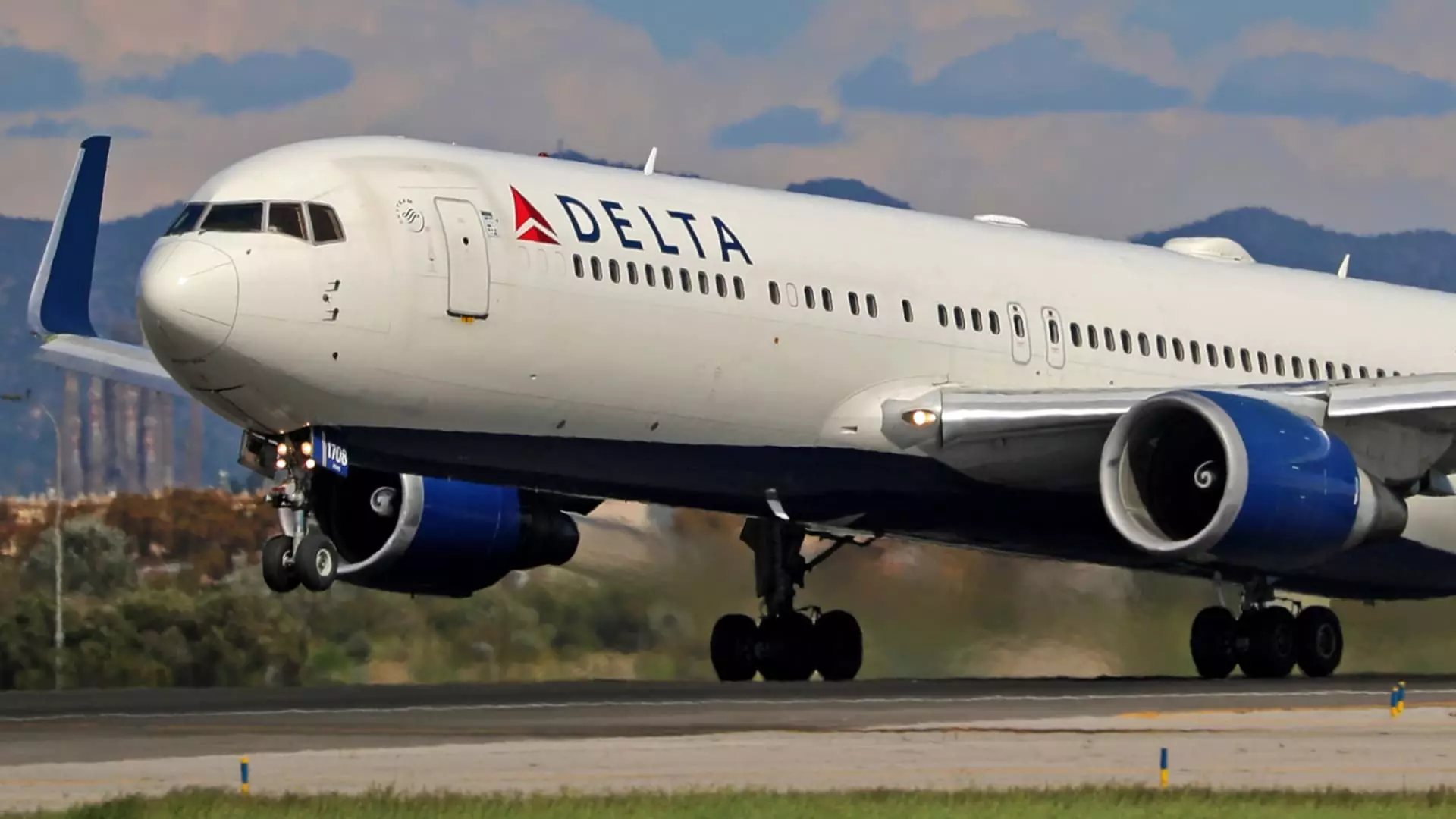In recent months, the air travel industry has experienced an unsettling decline in consumer demand. The situation is awakening concerns that go beyond simple market fluctuations; a potential paradigm shift could be looming on the horizon. Factors such as waning travel from our Canadian neighbors, reduced enthusiasm for transatlantic flights, and notable increases in government layoffs are seriously impacting the airline sector. While consumers had long prioritized travel even amid rising inflation, the softening signals now apparent cannot be ignored. As experts analyze the market, a significant challenge for U.S. airlines looms as they prepare to release their earnings—suggesting that expectations for 2025 are more pessimistic than previously anticipated.
The Layoff Ripple Effect
The airline industry is not just grappling with decreased consumer interest; it is also feeling the effects of broader economic forces. Mass layoffs across various sectors contribute to a reduced propensity for consumers to book flights. When major employers such as Deloitte downsize, the knock-on effect echoes through the economy. As professionals face uncertainty about their jobs, travel plans often get shelved. If the workforce—especially the affluent customers who regularly opt for premium experiences—begins to curtail their travel budgets, the airlines may find themselves confronting an increasing crisis of confidence.
The ramifications of these layoffs extend far beyond merely reducing flight bookings; they signal a worrying trend in consumer behavior that threatens to destabilize the entire travel ecosystem. As individuals feel less secure about their financial futures, discretionary spending—including travel—becomes an easy target for cutbacks.
Increased Tariffs: A Heavy Burden on Air Travel
The atmosphere becomes even more ominous with the introduction of global tariffs, recently enacted at rates no lower than 10% under policies aimed primarily at trade protectionism. These economic measures create significant headwinds for the airline industry, already reeling from the compounded effects of the pandemic. The uncertainty surrounding travel pricing is driving potential travelers to delay their plans, opting instead for staycations or local adventures that come with less financial risk.
In a market already grappling with reduced demand, these tariffs exacerbate concerns that airlines won’t just feel the immediate pinch—they may face a fundamental reshaping of their pricing strategies. With lower consumer confidence leading to hesitance in bookings, airlines might find themselves in a precarious position, torn between raising prices to offset added costs and risking the alienation of their customer base.
Faltering Flight Stocks: A Dismal Forecast
As a direct reflection of these operational challenges, airline stocks have suffered a significant downturn—fueling concerns about the stability of major carriers like Delta and American Airlines. The sharp sell-offs fueled by these economic signals position the entire industry on shaky ground, barely recovering from the traumas of 2020 when borders were closed and consumer travel demand dried up almost entirely. Compared to the struggles before, the current situation feels like a harbinger of more prolonged difficulty.
Market analysts have responded in kind, slashing targets and downgrading ratings for U.S. airlines even as companies like Delta continue to report that certain affluent customers remain hungry for a premium travel experience. However, this trend appears increasingly tenuous. The once-solid foundation of air travel as a priority consumer expense is beginning to feel more like quicksand—shifting and unstable as unforeseen events pile up.
Shadows of the Past: The Fear of History Repeating
While today’s challenges may not evoke the same overnight annihilation of air travel demand that emerged during the pandemic, the risks of a significant downturn still feel hauntingly familiar. Signs suggest that the segments of the market that previously flourished are now under strain, and concerns extend beyond the pure economic. The world is now observing a more isolationist approach to international relations, which could tilt the balance even further in terms of travel demand.
As airlines prepare to hold earnings calls, they will face pointed questions about sustainability in this shifting climate. Resiliency in premium sectors might cushion some of the blow, but analysts like Savanthi Syth already raise doubts about how airlines can rejuvenate demand without aggressive and attractive promotions. The future of airline demand hinges on a careful balance of adapting to changing consumer sentiment while managing the rising costs of doing business.
In a landscape where experience used to reign supreme, the emerging narrative shows that all is not well in the skies. As airlines brace for the turbulence ahead, the question remains whether they are prepared to navigate through or if they will find themselves grounded in uncertainty.

